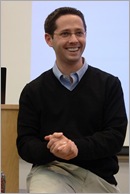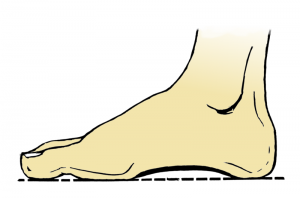 STAR Physical Therapy started in 1997 with just one clinic. Today they have over 60 outpatient clinics located throughout Indiana, Kentucky and Tennessee. Dave Landers, Vice President and partner of STAR Physical Therapy recently shared some of the factors that have contributed to their continuous growth with PT Talker.
STAR Physical Therapy started in 1997 with just one clinic. Today they have over 60 outpatient clinics located throughout Indiana, Kentucky and Tennessee. Dave Landers, Vice President and partner of STAR Physical Therapy recently shared some of the factors that have contributed to their continuous growth with PT Talker.
Each STAR Physical Therapy clinic is clinician-owned and operated. They strive to become a clinician’s place to practice by providing the tools to help clinicians become the best physical therapist they can be. Landers believes one aspect that sets STAR Physical Therapy apart from other clinics is their commitment to continuing education. They offer 12 different continuing education courses to their clinicians, credential tracks for physical therapists and recently had 19 clinicians take the McKenzie exam. Landers also believes developing relationships and working within the community is another factor behind their success. Learn more about the STAR Physical Therapy business philosophy and keys to their success by listening now.

 The opportunity to make a difference in the lives of others is one the reasons why many individuals become physical therapists. Dealing with the challenges involved with reimbursement by third party payers is not. In order to get paid for their services, physical therapists have to become experts at navigating treatment codes, insurance plans, documentation requirements and coverage policies. To help breakdown some of the complexity of third party reimbursement, Helene Fearon, PT and partner of Fearon and Levine Consulting recently shared her third-party payment expertise with PT Talker.
The opportunity to make a difference in the lives of others is one the reasons why many individuals become physical therapists. Dealing with the challenges involved with reimbursement by third party payers is not. In order to get paid for their services, physical therapists have to become experts at navigating treatment codes, insurance plans, documentation requirements and coverage policies. To help breakdown some of the complexity of third party reimbursement, Helene Fearon, PT and partner of Fearon and Levine Consulting recently shared her third-party payment expertise with PT Talker.
In order to get paid, physical therapists must be complaint with third party payer rules and regulations. An increasing number of insurance companies follow the Medicare reimbursement policy. Fearon believes this has simplified compliance. She also adds that a number of software programs are available to help simplify documentation and compliance by providing compliance alerts.
Fearon also believes physical therapists are at a greater risk of being audited now. Listen now to find out why.


From throwing a ball over 100 mph per hour to reaching for items on a high shelf, the shoulder is an amazing and complex joint. It’s also a joint that is prone to injury. Shoulder expert, Mike Reinold, PT, DPT, SCS, ATC, CSCS joins PT Talker to share his expertise on treating shoulder injuries. Reinhold is the Head Athletic Trainer and Assistant Director of Medical Services for the Boston Red Sox Baseball Club and Coordinator of Rehabilitation Research and Education at Massachusetts General Hospital.
Reinold found that elite athletes will do what they can to keep playing even when injured. They’ll find a way to compensate their bodies to achieve their goal and keep performing. This discovery can be used by physical therapists working with weekend warriors and other individuals with a shoulder injury to develop ways to compensate for the injury to achieve their daily goals.
During his career, Reinold has changed his physical therapy program to frequently to fit needs of his clients. He frequently implements new findings and continuously adapts to provide the best possible outcomes. Dedicated to educating others, Reinold shares much of his findings with other physical therapists on his blog (mikereinold.com) and his online continuing education program (shoulderseminar.com). Learn more by listening to the full podcast now.

 Heel pain affects nearly 2 million Americans. This painful and debilitating condition is commonly associated with plantar fasciitis. But many of those diagnosed with plantar fasciitis may have a different issue. In our 100th episode, foot and ankle expert, Josh Bailey, PT, DPT, OCS, CSCS, CPed joins PT Talker to provide some tips for effectively treating heel pain. Dr. Bailey is co-owner, president and chief clinical officer for Rehabilitation Associates of Central Virginia. He also teaches foot and ankle continuing education courses through North American Seminars.
Heel pain affects nearly 2 million Americans. This painful and debilitating condition is commonly associated with plantar fasciitis. But many of those diagnosed with plantar fasciitis may have a different issue. In our 100th episode, foot and ankle expert, Josh Bailey, PT, DPT, OCS, CSCS, CPed joins PT Talker to provide some tips for effectively treating heel pain. Dr. Bailey is co-owner, president and chief clinical officer for Rehabilitation Associates of Central Virginia. He also teaches foot and ankle continuing education courses through North American Seminars. 



